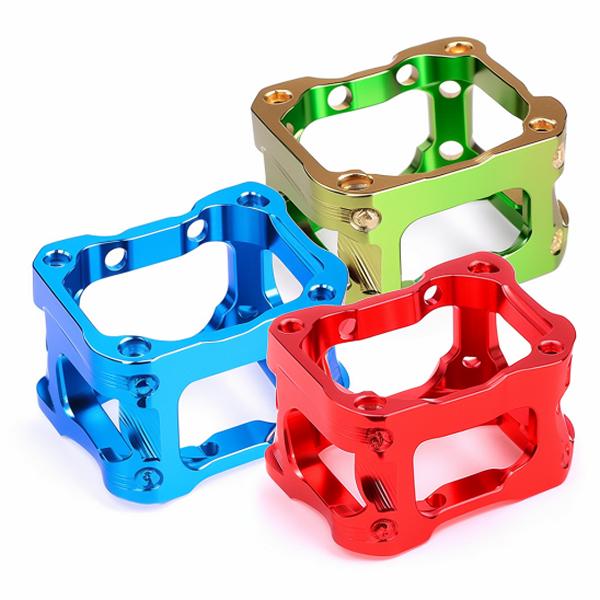The Basic Principles Of Alcast Company
The Basic Principles Of Alcast Company
Blog Article
Getting The Alcast Company To Work
Table of ContentsWhat Does Alcast Company Mean?The smart Trick of Alcast Company That Nobody is Talking AboutAlcast Company - The FactsThe Definitive Guide for Alcast CompanyThe Alcast Company PDFsThe Only Guide for Alcast Company
Chemical Contrast of Cast Aluminum Alloys Silicon promotes castability by lowering the alloy's melting temperature level and enhancing fluidity during spreading. Furthermore, silicon adds to the alloy's stamina and use resistance, making it important in applications where longevity is crucial, such as vehicle components and engine components.It likewise improves the machinability of the alloy, making it less complicated to process right into ended up items. By doing this, iron adds to the total workability of aluminum alloys. Copper enhances electrical conductivity, making it advantageous in electric applications. It additionally enhances deterioration resistance and adds to the alloy's general stamina.
Manganese adds to the strength of aluminum alloys and enhances workability. Magnesium is a light-weight element that offers toughness and effect resistance to light weight aluminum alloys.
Unknown Facts About Alcast Company
It allows the manufacturing of lightweight components with exceptional mechanical residential properties. Zinc improves the castability of light weight aluminum alloys and helps control the solidification process during casting. It improves the alloy's strength and firmness. It is usually located in applications where detailed shapes and fine details are necessary, such as ornamental spreadings and specific vehicle parts.

The main thermal conductivity, tensile stamina, yield strength, and elongation differ. Select appropriate basic materials according to the performance of the target product generated. Among the above alloys, A356 has the highest possible thermal conductivity, and A380 and ADC12 have the lowest. The tensile restriction is the opposite. A360 has the ideal return stamina and the greatest elongation price.
The smart Trick of Alcast Company That Nobody is Talking About

In accuracy casting, 6063 is appropriate for applications where elaborate geometries and top notch surface area coatings are vital. Examples include telecommunication enclosures, where the alloy's superior formability enables streamlined and cosmetically pleasing layouts while keeping structural stability. Likewise, in the Lighting Solutions industry, precision-cast 6063 elements produce sophisticated and efficient lights components that call for elaborate shapes and good thermal efficiency.
It brings about a better surface coating and much better corrosion resistance in A360. Moreover, the A360 displays superior prolongation, making it suitable for complicated and thin-walled parts. In accuracy spreading applications, A360 is appropriate for sectors such as Customer Electronic Devices, Telecommunication, and Power Tools. Its boosted fluidity enables elaborate, high-precision parts like mobile phone coverings and communication tool housings.
Indicators on Alcast Company You Should Know
Its unique buildings make A360 a valuable option for precision casting in these industries, boosting product toughness and quality. aluminum casting manufacturer. Aluminum alloy 380, or A380, is a commonly used spreading alloy with several distinct attributes.
In precision casting, light weight aluminum 413 shines in the Consumer Electronics and Power Devices industries. This alloy's exceptional rust resistance makes it an excellent option for outside applications, making certain durable, long lasting items in the stated sectors.
Alcast Company - Questions
Once you have decided that the light weight aluminum pass away casting procedure is suitable for your project, an important next action is selecting one of the most ideal alloy. The light weight aluminum alloy you pick will significantly affect both the casting process and the residential properties of the end product. As a result of this, you should make your choice meticulously and take an educated technique.
Establishing one of the most appropriate light weight aluminum alloy for your application will mean considering a broad selection of features. These comparative alloy features follow the North American Pass Away Spreading Organization's read the article guidelines, and we have actually divided them right into two groups. The first group addresses alloy qualities that influence the manufacturing procedure. The second covers attributes affecting the homes of the final product.
Alcast Company for Dummies
The alloy you pick for die spreading straight impacts numerous facets of the spreading procedure, like just how very easy the alloy is to function with and if it is vulnerable to casting flaws. Warm cracking, additionally called solidification fracturing, is a common die casting problem for aluminum alloys that can lead to interior or surface-level splits or cracks.
Certain aluminum alloys are much more susceptible to warm fracturing than others, and your option needs to consider this. One more common problem found in the die spreading of light weight aluminum is pass away soldering, which is when the cast sticks to the die wall surfaces and makes ejection tough. It can harm both the cast and the die, so you should look for alloys with high anti-soldering buildings.
Rust resistance, which is currently a significant feature of aluminum, can differ significantly from alloy to alloy and is a vital particular to think about depending on the ecological problems your product will certainly be exposed to (aluminum casting company). Put on resistance is another residential or commercial property generally sought in light weight aluminum items and can differentiate some alloys
Report this page